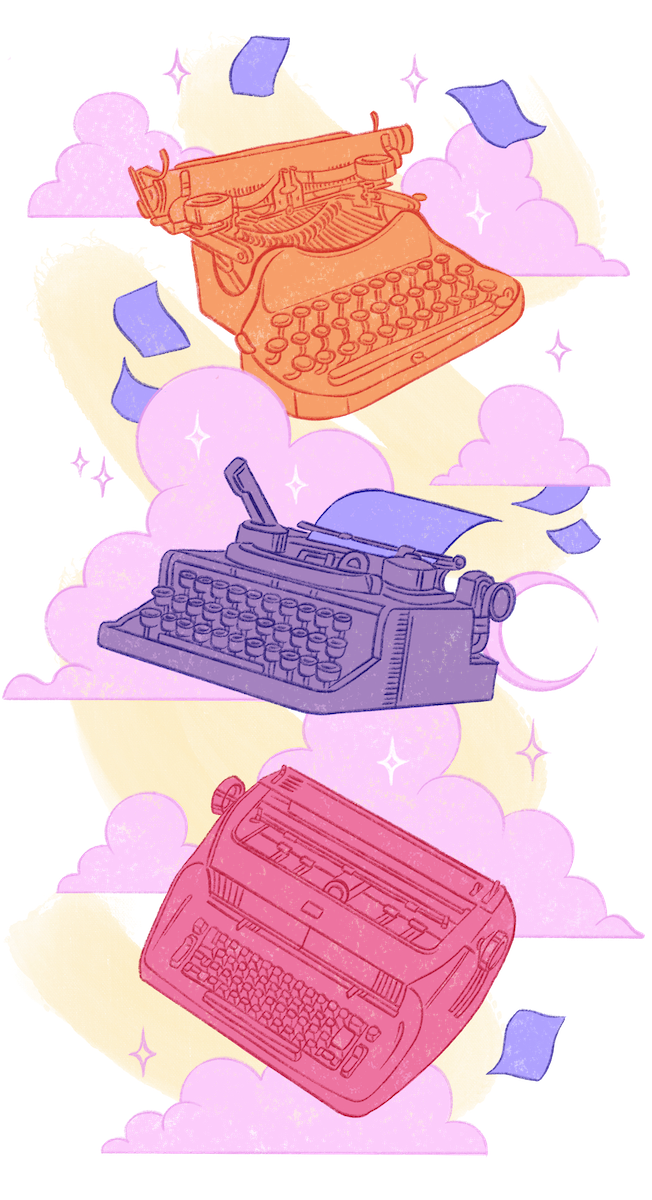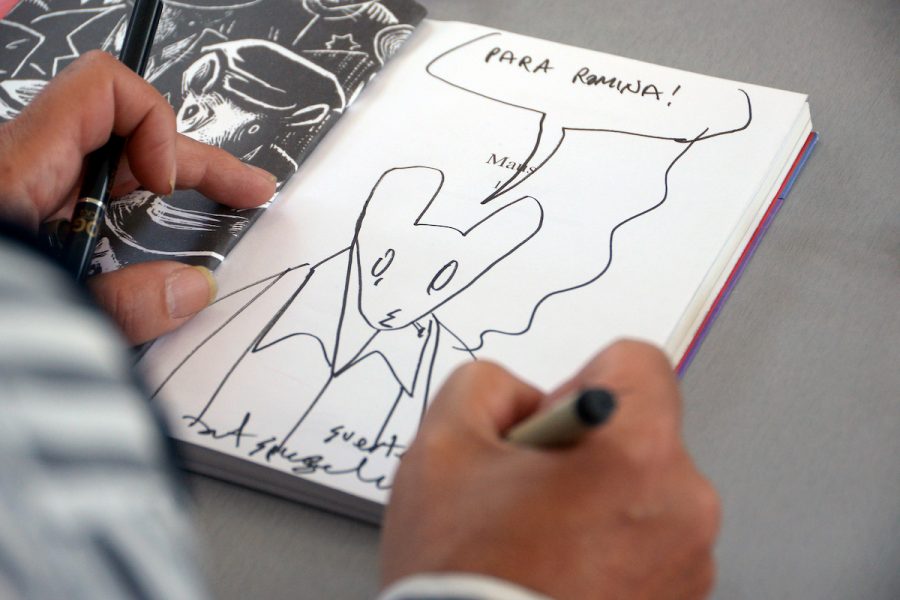What kind of a person do you picture using a typewriter in the digital age? If you imagined hipster poets, novelists with day jobs or anyone who religiously collects vinyl, you might be partially correct. But you’d also be missing the whole picture.
Don Reed, the owner of Pacific Typewriter Company in Portland, Oregon, filled out the missing parts in the story of modern typewriter demand.
“Most of the customers that I have right now [are] cities, counties, banks, mortuaries…because they have forms they have to fill out,” Reed explained. “There’s two- or three-part forms. With the state of Oregon for example, they have to type those.”
Reed’s biggest clients aren’t collectors, hipsters or antiquarians at all, but modern business-oriented organizations and agencies. Which begs the question: in a world stocked with computers that are both powerful and cheap, why use typewriters at all? The answer, as in so many cases, boils down to a case of legal fine print.
Almost all businesses and government agencies are required to fill out reams of legal forms as part of their day-to-day operations, and in many cases, these legally-binding documents can’t be scanned because it represents an alteration of the original—and is therefore void. Reed cited an example of a recent client who tried to submit scanned legal documents to a law school, only to find them rejected because they weren’t the original forms she was supposed to fill out.
“They wouldn’t accept it,” Reed said. “It wasn’t their form…they just said no.” The client spent a hundred dollars and got a typewriter—a solution Reed could provide.
Stories like this one aren’t unique. In fact, their sheer commonality is what supplies Pacific Typewriter with a steady stream of business.
But for Reed, supplying typewriters to meet this demand is nothing new.
Reed started at Pacific Typewriter—then called Portland Typewriter—in 1966, when he was in his early twenties. He worked his way up in the company, eventually earning himself his own territory for the chance to earn his own commissions. With the extra money coming in, he reinvested his spare income into the business, gradually accumulating ownership until he and a few colleagues were able to take over the company when it was changing hands.
In those early years, before cheap desktop computers took over as word processors, business was fast, and competition was fierce.
“Back in the ‘80s, if you didn’t answer the phone on the third ring, they’d call somebody else,” Reed said.
He described tooth-and-nail pricing competitions between rival typewriter retailers as they jostled for market shares—in showdowns that Reed compared to gas wars. Product moved fast, and Reed was sometimes selling upwards of twenty typewriters at a time to business offices.
Now, decades later, computers have taken over daily word-processing needs—but electronic typewriters are still in demand, despite the tech-savvy trend towards digital.
Reed recounted a conversation with several computer salesmen at a convention that underscored the 21st-century reliance on typewriters. They asked him who still used typewriters, and when Reed questioned in return if they had to ever fill out any forms, they said yes. And, of course, they used a typewriter to do it.
The two computer salesmen Reed remembered aren’t alone in their use of typewriters for legal forms, but for them and other businesses, there’s a problem: most decent electronic typewriters have been discontinued.
“Today you cannot buy a typewriter new that’s worth anything,” Reed said. “They’re absolute garbage.”
Companies like Reed’s fill in the gap in supply by assembling large quantities of used IBM electric typewriters and refurbishing them for the commercial market. With few modern-day competitors, Pacific Typewriter is able to control much of the market.
“I don’t make any calls anymore,” Reed said of finding new clients. “I haven’t done that for years.”
Not all of Reed’s customers are businesses and government offices, however.
Some, per the established typewriter-owner stereotype, are vintage-loving collectors. Reed himself doesn’t share their antiquarian drive, but he’s happy to help them find what they’re looking for.
“I’m not a collector,” he said. “I buy and sell.”
The contrast between Reed’s commercial and retail customers highlights the fact that people buy things for very different reasons. Regardless of their motivations, Reed enjoys the business.
“It’s something I love to do,” Reed said.



